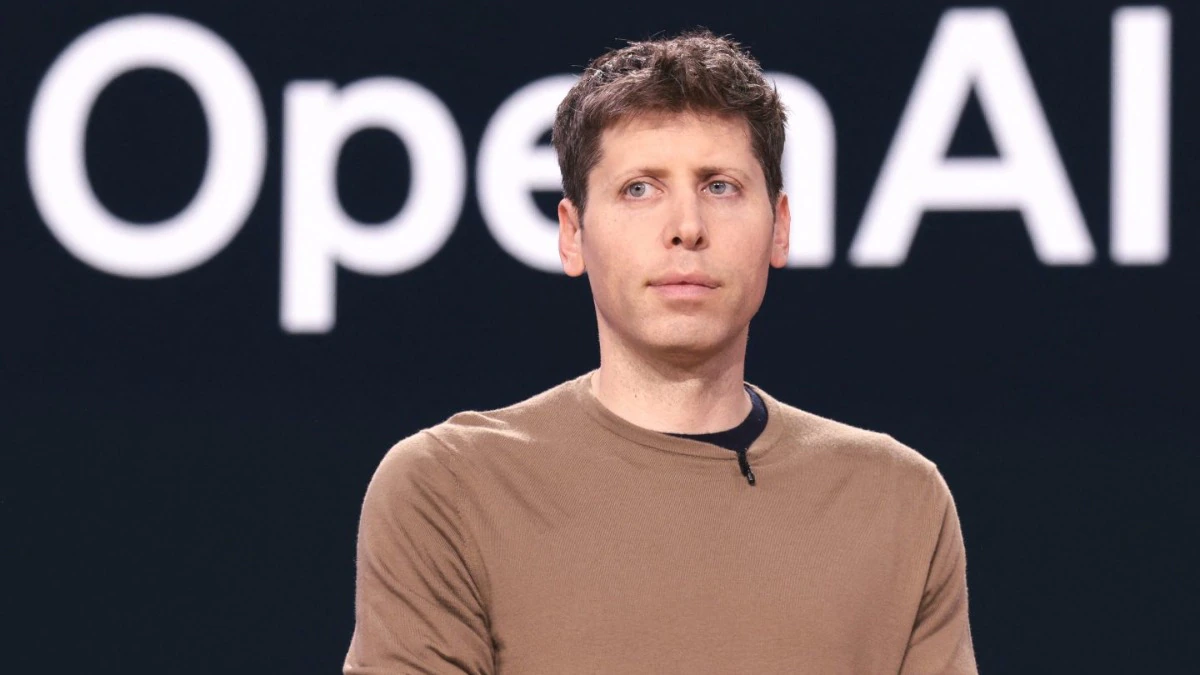22/06/2025
22/06/2025

NEW YORK, June 22: As artificial intelligence advances at a breakneck pace, concerns are mounting about its disruptive impact on the entry-level job market, particularly for fresh college graduates. Earlier this month, OpenAI CEO Sam Altman revealed that AI can already handle tasks equivalent to those performed by entry-level employees. Now, in a podcast hosted by his brother Jack Altman, Sam went a step further — claiming that AI is capable of performing tasks typically expected of elite PhD holders.
“In some sense, AIs are like top competitive programmers now,” Altman said during the Uncapped podcast. “They can get top scores in the world’s hardest math competitions or solve problems that I’d expect only expert PhDs in my field to tackle.”
The remarks come amid a growing chorus of industry voices warning about AI’s potential to reshape the labor landscape. Amazon, for example, has admitted that AI could soon replace swaths of its corporate workforce. Dario Amodei, CEO of Anthropic, recently warned that the technology could eliminate up to half of all entry-level white-collar jobs.
Tough job market for new grads
This graduation season has already proven to be one of the most difficult in years. The unemployment rate among bachelor’s degree holders climbed to 6.1% in May, up from 4.4% in April, according to data from the Federal Reserve Bank of St. Louis. Fields closely tied to AI exposure—such as commercial art, graphic design, fine arts, and computer engineering—are among the hardest hit, with unemployment rates surpassing 7%.
Job market volatility, however, is nothing new in the tech sector. Art Zeile, CEO of tech career platform Dice, points out that nearly 600,000 tech workers were laid off between 2022 and 2024, according to Layoffs.fyi. Still, he remains cautiously optimistic.
“There’s no question it’s a challenging time to be a new graduate,” Zeile said. “We’ve seen reductions in hiring, especially for entry-level roles, as companies reassess and seek more specialized skills. But I wouldn’t hit the panic button just yet.”
A time for reskilling and adaptation
Industry experts say this period presents an opportunity for young professionals to refocus and upskill. Tiffany Hsieh, Director of the Center for Artificial Intelligence and the Future of Work at Jobs for the Future, emphasized the need for adaptability.
“Graduates interested in fields like technology or design should consider reskilling or pivoting, while those in less AI-impacted professions like elementary education or civil engineering have less to worry about,” Hsieh told Fortune.
Altman, too, believes that AI won’t entirely upend the job market. “A lot of jobs will go away or change dramatically, but we’ve always found new ways to be useful to one another,” he said, noting that some future jobs may sound “silly” by today’s standards — just as the podcasting industry did a decade ago.
The emerging job frontier
According to Zeile, tomorrow’s jobs will likely revolve around AI integration, including roles in AI governance, security, ethical implementation, and data storytelling. Experience in “agentic AI”—systems that can independently make decisions—will be especially valuable.
“Professionals who master agentic AI, which is still emerging, may become invaluable to companies looking to automate large portions of their operations,” Zeile noted.
Hsieh predicts the rise of hybrid “Frankenstein roles”—such as story designers or HR experience architects—that blend human-centered responsibilities with technical knowledge. She adds that fields like healthcare and skilled trades are expected to remain relatively stable in the face of AI disruption.
“It’s okay to explore industries you hadn’t previously considered,” Hsieh said. “You will gain skills and experience that will remain valuable across many roles. Embracing a mindset of lifelong learning is now essential.”
How grads can stand out
As competition intensifies for the shrinking pool of entry-level jobs, conventional tools like résumés and cover letters—easily generated by AI—may no longer suffice. Instead, building a strong portfolio and cultivating a professional network can offer a competitive edge.
“Demonstrated experience is now a valuable currency,” Hsieh explained. “Building MVP tools with AI for a specific industry or local challenge can show initiative and critical thinking.”
Zeile compared the job hunt to a personal marketing campaign. “Hiring managers are often looking for potential over experience,” he said. “Expressing passion and a desire to grow, coupled with continuous upskilling in areas like AI, cloud, or data, can help early-career professionals stand out.”
Despite the challenges, both experts believe that with the right mindset and strategy, graduates can navigate this evolving landscape—and even thrive.


